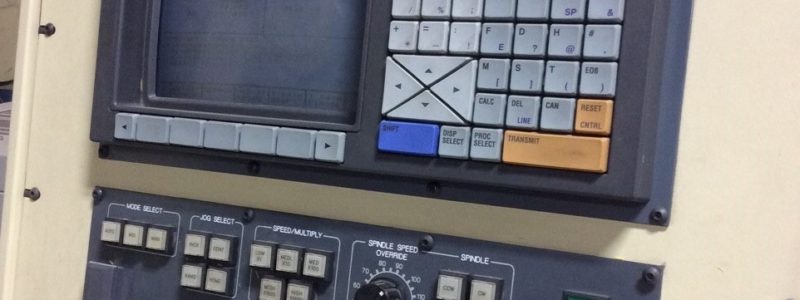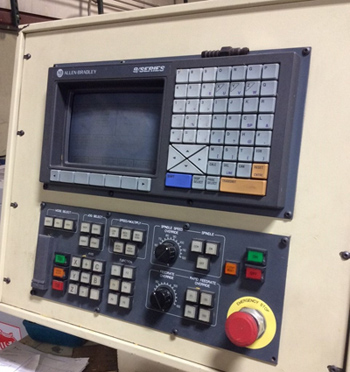CNC Controller Repair: Expert Tips on Diagnosing and Repairing Your Controller

 Automation makes work processes faster and more efficient. A CNC controller is integral in automation, as it serves as a link between industrial equipment and accompanying computer systems. This is why CNC repair and keeping your controller maintained is essential.
Automation makes work processes faster and more efficient. A CNC controller is integral in automation, as it serves as a link between industrial equipment and accompanying computer systems. This is why CNC repair and keeping your controller maintained is essential.
These devices allow for precision work at a much faster rate, which is why they are a staple at most industrial plants and manufacturing warehouses. Of course, when issues arise you may find your facility grinding to a halt, which impacts client deadlines and profit earning capability.
That’s where K+S Services comes in. As a leading voice in CNC controller repair services, these professional technicians utilize state-of-the-art diagnostic testing of CNC components, which helps pinpoint the exact issue so techs are able to devise a quality repair solution.
It can be hard to discern issues with your CNC equipment and CNC repair until it’s too late. The following guide will allow you to do just that, so you can secure reliable repair service and prevent a costly interruption to your workflow.
What Are Some Common CNC Repairs?
The design and function of CNC machines vary greatly as does the CNC repair process. Some controllers are exceedingly complex while others provide simplified commands. Despite these variances, there are three basic issues that most CNC controllers encounter during their lifespan.
The first has to do with overheating. Daily use of a machine can easily lead to clogged filters, especially if proper maintenance isn’t performed. When filters become clogged overheating is likely, as proper air flow will be blocked.
The next potential issue is damage to edges when cutting. Edges must be precise when cutting, whether cutting pieces of metal or repairing vehicle components. This is usually an issue with the cutting tool itself, and in most cases replacing the tool will remedy the issue. However, in some cases the problem may be the speed at which you’re using the tool. If so, scheduling service with a CNC repair tech is recommended to troubleshoot the issue.
The last problem is chattering or vibrating. This issue can impact the machine as a whole or just affect a single component. Regardless, heavy vibration will harm component parts as well as degrade the quality of the work performed.
In terms of a reliable solution, there are a few different troubleshooting methods that remedy chattering. Some machinists prefer altering the depth and width refraction, while others suggest slowing down the machine speed.
How Can I Get More Out of My Equipment?
Extending the lifespan of your essential equipment is a must. CNC machines are integral to workflow, and replacing one requires quite a bit of money. While some replacements can’t be avoided, you want to get the most out of your machine before it’s time to look for a new model. There are actions you can take to that end, such as training your employees on proper use of equipment.
All employees that come in contact with your CNC machines should undergo an extensive tutorial. Along with the basics of the operation, also provide examples of what not to do. Make sure each worker is aware of proper maintenance, as well as being able to identify potential issues.
CNC Machine Maintenance
Maintenance goes a long way when it comes to the quality of your machine, and with the right maintenance the equipment could last up to ten years or even longer. In this respect, enlist one of your workers to oversee maintenance scheduling to ensure components are serviced on a regular basis.
When it comes to CNC controller maintenance and CNC repair, K+S Services has the tools and the knowledge to keep your plant running in top form. They also provide a selection of quality products from reputable CNC controller manufacturers in the event you need a replacement for your facility.
If you’d like to learn more about CNC controller repair and maintenance, contact K+S Services by filling out the online form or calling 800-542-1331.